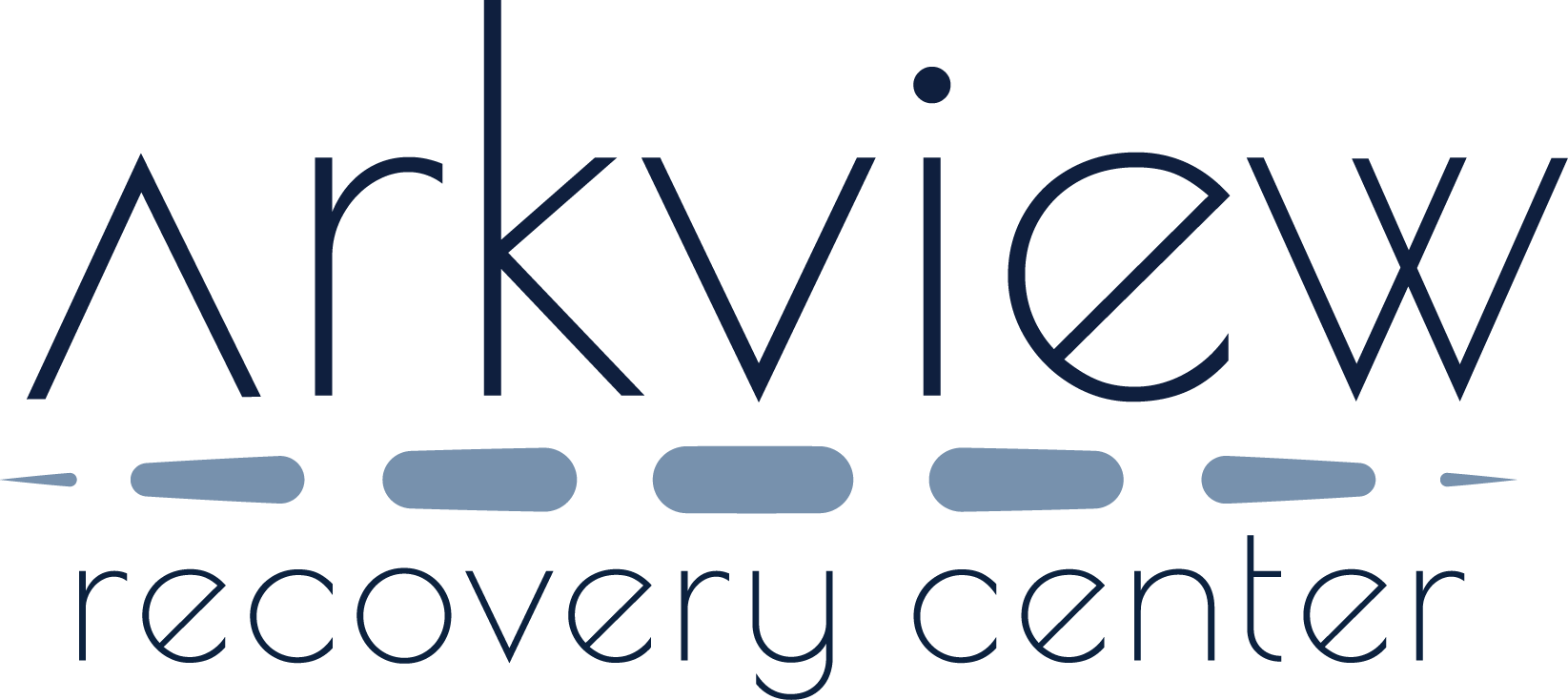Mechanicsburg, Pennsylvania, United States
Arkview Recovery Center
Verified
Verified
This provider’s information has been quality-checked by Recovery.com’s Research Team for accuracy and completeness, including center verification through appropriate third-party organizations.
Joint Commission Accredited
The Joint Commission accreditation is a voluntary, objective process that evaluates and accredits healthcare organizations (like treatment centers) based on performance standards designed to improve quality and safety for patients. To be accredited means the treatment center has been found to meet the Commission's standards for quality and safety in patient care.
Provider's Policy
Arkview Recovery Center is in network with most major insurances. Arkview’s admissions team can provide a verification of benefits and confidential consultation at no cost or obligation to you. Insurance typically covers treatment at Arkview with little to no out of pocket expense.
Estimated Cash Pay Rate
The cost listed here ($22,500-$27,500/ 30 days) is an estimate of the cash pay price. Center pricing can vary based on program and length of stay. Contact the center for more information. Recovery.com strives for price transparency so you can make an informed decision.
About Arkview Recovery Center
Arkview Recovery Center gives clients the best chances of successful and sustainable recovery by providing compassionate, individualized care. They understand that addiction is more than a diagnosis--it's a deeply personal journey that requires support, structure, and connection. They walk alongside clients every step of the way through a full continuum of care, from medically-monitored detox to residential treatment and intensive outpatient services. With integrated support like life skills development and medication-assisted treatment, they help clients build a strong foundation for lasting change.
Benefit from Whole-Person Healing
Arkview offers a path to healing that transforms the entire being, not just habits. They weave together gender-specific, evidence-based therapies like cognitive behavioral therapy and dialectical behavior therapy, with personalized care to tackle substance use and mental health challenges. Their approach reaches beyond the individual, incorporating family therapy to repair relationships. And because true well-being is about more than just therapy, they nurture mind, body, and spirit with yoga and meditation.
Feel Welcomed and Peaceful While Healing
Located just outside Harrisburg, Pennsylvania, Arkview Recovery’s campus was created with comfort in mind, making it easier to focus on recovery. Clients relax in private rooms that promote rest and reflection. Beyond their personal space, clients find thoughtfully-curated amenities--including fitness areas, recreational lounges, and serene common spaces—that encourage self-care and emotional balance.
Build Lifelong Connections for Lasting Support
Recovery doesn’t end when treatment does—and at Arkview, neither does their support. Through their alumni program, clients stay connected to a community that understands and uplifts. Regular gatherings, peer-led support, and continued access to recovery resources help clients maintain momentum and thrive in life after treatment.
Read More

Insurance Accepted
Provider's Policy:Arkview Recovery Center is in network with most major insurances. Arkview’s admissions team can provide a verification of benefits and confidential consultation at no cost or obligation to you. Insurance typically covers treatment at Arkview with little to no out of pocket expense.
Take Control Today with Dual Diagnosis Care
For those battling both addiction and mental health, Arkview is here to help clients win both with dual diagnosis care. First they uncover the root of addiction and face those head-on—is it masking grief, trauma, anxiety? Then, they help clients process overwhelming emotions, teaching them to navigate them without substances. Clients then engage in therapy, medication, and support that is tailored to their needs.
Let Arkview Handle the Logistics
Taking the first step towards recovery is huge, but figuring out the logistics shouldn’t be another hurdle. Arkview makes the process of getting to treatment stress-free by offering airport pickups, local rides, and even transportation to meetings and job interviews. And if transportation costs are a concern, they offer support programs to help cover or offset the price.
Understand and Manage Trauma
Struggling with the lingering effect of trauma is common, but clients don’t need to walk that path alone. The compassionate and effective PTSD treatment at Arkview helps clients reclaim their lives—whether they’ve experienced a single traumatic event or have a history of trauma. Clients are safe to share their stories and process at their own pace, meanwhile therapists use proven techniques to help understand trauma and manage triggers.
Heal with Honor
Arkview Recovery honors veterans’ service with a program designed specifically for them. Their team is Psyche Armor certified, meaning they provide culturally competent and sensitive support. Their therapists have a deep understanding of the challenges veterans face and offer solutions to help manage stress and strong emotions.

Center Overview
Estimated Cash Pay Rate
Older Adults
Addiction and mental health treatment caters to adults 55+ and the age-specific challenges that can come with recovery, wellness, and overall happiness.
Men and Women
Men and women attend treatment for addiction in a co-ed setting, going to therapy groups together to share experiences, struggles, and successes.
Pregnant Women
Addiction and mental health treatment meets the clinical and psychological needs of pregnant women, ensuring they receive optimal care in all areas.
Professionals
Busy, high-ranking professionals get the personalized treatment they need with greater accommodations for work, privacy, and outside communication.
Veterans
Patients who completed active military duty receive specialized treatment focused on trauma, grief, loss, and finding a new work-life balance.

Treatment Focus
This center treats primary substance use disorders and co-occurring mental health conditions. Your treatment plan addresses each condition at once with personalized, compassionate care for comprehensive healing.

Care Options








Treatment
Specializations
Alcohol
Using alcohol as a coping mechanism, or drinking excessively throughout the week, signals an alcohol use disorder.
Detox
Detox fully and safely removes toxic substances from the body, allowing the next steps in treatment to begin with a clean slate.
Co-Occurring Disorders
A person with multiple mental health diagnoses, such as addiction and depression, has co-occurring disorders also called dual diagnosis.
Drug Addiction
Drug addiction is the excessive and repetitive use of substances, despite harmful consequences to a person's life, health, and relationships.
Methamphetamine
Methamphetamine, or meth, increases energy, agitation, and paranoia. Long-term use can result in severe physical and mental health issues.
Opioids
Opioids produce pain-relief and euphoria, which can lead to addiction. This class of drugs includes prescribed medication and the illegal drug heroin.
Gender-Specific
Separate treatment for men or women can create strong peer connections and remove barriers related to trauma, shame, and gender-specific nuances.
Approaches
Evidence-Based
A combination of scientifically rooted therapies and treatments make up evidence-based care, defined by their measured and proven results.
Individual Treatment
Individual care meets the needs of each patient, using personalized treatment to provide them the most relevant care and greatest chance of success.
Twelve Step
Incorporating spirituality, community, and responsibility, 12-Step philosophies prioritize the guidance of a Higher Power and a continuation of 12-Step practices.
Therapies
1-on-1 Counseling
Patient and therapist meet 1-on-1 to work through difficult emotions and behavioral challenges in a personal, private setting.
Expressive Arts
Creative processes like art, writing, or dance use inner creative desires to help boost confidence, emotional growth, and initiate change.
Eye Movement Therapy (EMDR)
Lateral, guided eye movements help reduce the emotional reactions of retelling and reprocessing trauma, allowing intense feelings to dissipate.
Family Therapy
Family therapy addresses group dynamics within a family system, with a focus on improving communication and interrupting unhealthy relationship patterns.
Interpersonal Therapy
This brief and structured therapy addresses present relationships and improves overall communication at work, home, and other social settings.
Medication-Assisted Treatment
Combined with behavioral therapy, prescribed medications can enhance treatment by relieving withdrawal symptoms and focus patients on their recovery.
Motivational Interviewing and Enhancement Therapy (MET)
This approach is based on idea that motivation to change comes from within. Providers use a conversational framework that may help you commit to recovery.
Sound Therapy
Sound therapy incorporates music, sound waves, and vibrations to promote emotional and spiritual healing.
Twelve Step Facilitation
12-Step groups offer a framework for addiction recovery. Members commit to a higher power, recognize their issues, and support each other in the healing process.
Conditions We Treat
Grief and Loss
Grief is a natural reaction to loss, but severe grief can interfere with your ability to function. You can get treatment for this condition.
ADHD, ADD
ADHD is a common mental health condition caused by dopamine imbalance. Common symptoms include inattention, hyperactivitiy, and impulsivity.
Anger
Although anger itself isn't a disorder, it can get out of hand. If this feeling interferes with your relationships and daily functioning, treatment can help.
Anxiety
Anxiety is a common mental health condition that can include excessive worry, panic attacks, physical tension, and increased blood pressure.
Codependency
Codependency is a pattern of emotional dependence and controlling behavior. It's most common among people with addicted loved ones.
Depression
Symptoms of depression may include fatigue, a sense of numbness, and loss of interest in activities. This condition can range from mild to severe.
Post Traumatic Stress Disorder
PTSD is a long-term mental health issue caused by a disturbing event or events. Symptoms include anxiety, dissociation, flashbacks, and intrusive thoughts.
Self-Harm
The act of intentionally harming oneself, also called self-injury, is associated with mental health issues like depression.
Stress
Stress is a natural reaction to challenges, and it can even help you adapt. However, chronic stress can cause physical and mental health issues.
Suicidality
With suicidality, a person fantasizes about suicide, or makes a plan to carry it out. This is a serious mental health symptom.
Substances We Treat
Alcohol
Using alcohol as a coping mechanism, or drinking excessively throughout the week, signals an alcohol use disorder.
Benzodiazepines
Benzodiazepines are prescribed to treat anxiety and sleep issues. They are highly habit forming, and their abuse can cause mood changes and poor judgement.
Co-Occurring Disorders
A person with multiple mental health diagnoses, such as addiction and depression, has co-occurring disorders also called dual diagnosis.
Cocaine
Cocaine is a stimulant with euphoric effects. Agitation, muscle ticks, psychosis, and heart issues are common symptoms of cocaine abuse.
Drug Addiction
Drug addiction is the excessive and repetitive use of substances, despite harmful consequences to a person's life, health, and relationships.
Ecstasy
Ecstasy is a stimulant that causes intense euphoria and heightened awareness. Abuse of this drug can trigger depression, insomnia, and memory problems.
Heroin
Heroin is a highly addictive and illegal opioid. It can cause insomnia, collapsed veins, heart issues, and additional mental health issues.
Psychedelics
Hallucinogenic drugs—like LSD—cause euphoria and increased sensory experiences. When abused, they can lead to depression and psychosis.
Methamphetamine
Methamphetamine, or meth, increases energy, agitation, and paranoia. Long-term use can result in severe physical and mental health issues.
Aftercare
Experience
Personal Amenities
Amenities
Special Considerations
Gender-specific groups
Patients in gender-specific groups gain the opportunity to discuss challenges unique to their gender in a comfortable, safe setting conducive to healing.
Activities
Yoga
Yoga is both a physical and spiritual practice. It includes a flow of movement, breathing techniques, and meditation.
Off-Site Activities
Professional Staff

Cassandra Harris
Program Director

Kyle Ranney
Lead Therapist
LCSW

Theresa Polheber
Therapist
MS

Zach Whipperman
Director of Community Outreach
Accommodations
Food & Nutrition
Treatment
Value
Trisha
We love hearing about your treatment experience
Help individuals and families seeking treatment by sharing your first-hand experience with this treatment provider. Review Guidelines.














































